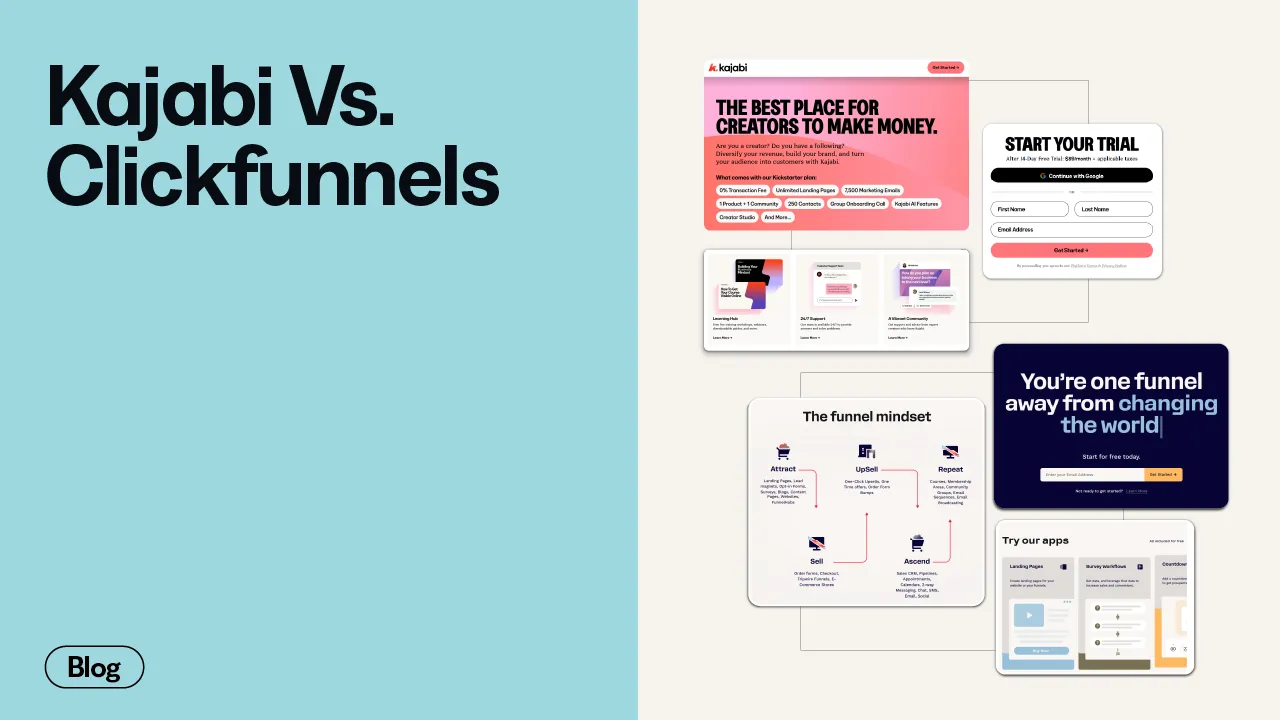Blog
Kajabi Vs Clickfunnels: Which Is Best For Your Needs? [2025 Guide]
Kajabi vs ClickFunnels? Compare these platforms head-to-head, and find out which one suits your online business needs with this complete guide.

Kajabi vs ClickFunnels? Compare these platforms head-to-head, and find out which one suits your online business needs with this complete guide.
